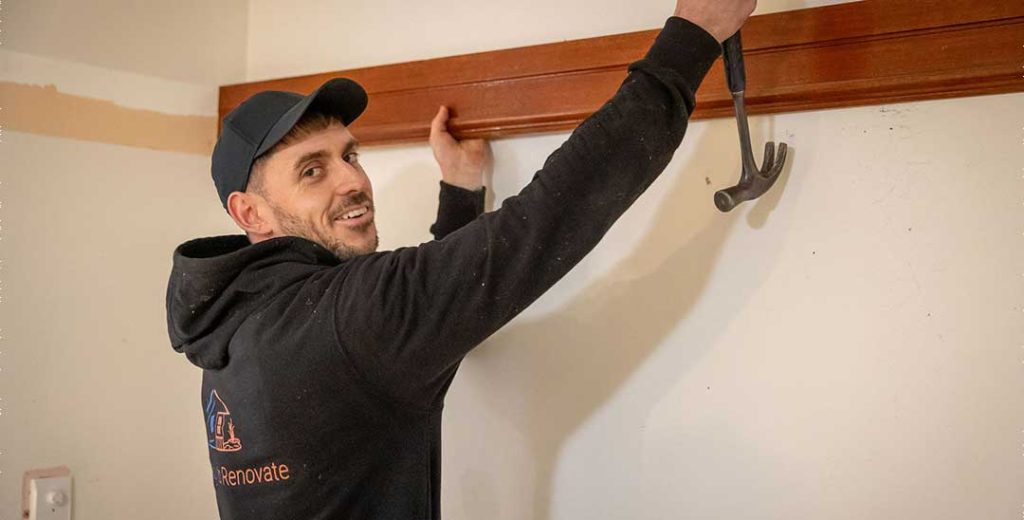
Categories: Renovation,
When it comes to the property market, there’s one trend that has been crystal clear for years: renovated homes sell faster and at a premium. The reason isn’t just about looks; it’s about peace of mind, convenience, and lifestyle. Many buyers today prefer a “move-in ready” property over a fixer-upper — even if it comes with a higher price tag.
In this blog, we’ll explore why buyers are more inclined to purchase fully renovated homes, what drives this demand, and how large-scale renovations like kitchens, bathrooms, and extensions can transform both the value of a home and the experience of selling it.
The Modern Buyer’s Mindset — Why Renovated Homes Win
For many buyers, the thought of taking on a renovation project is daunting. It’s not just about the mess or the inconvenience; it’s about the unknowns that come with an unrenovated property.
The Fear Factor of Fixer-Uppers
Unrenovated homes often carry a stigma — not because they are inherently bad, but because buyers worry about hidden issues. Questions start to pile up:
- What’s going on under those floorboards?
- Will the plumbing need replacing?
- Are there structural problems I can’t see?
These unknowns quickly translate into perceived risk. The more uncertainty, the less attractive the property becomes. Buyers imagine costly repairs, long timelines, and endless coordination with tradespeople — none of which they are eager to take on.
The Time-Poor Reality of Modern Life
In addition to fears about what might be lurking behind the walls, many buyers simply don’t have the time or inclination to manage a renovation. Between work, family, and other commitments, taking on a full home improvement project can feel impossible.
Renovations require more than just money. They demand:
- Research and decision-making on design and finishes
- Finding and managing multiple trades
- Coordinating timelines and dealing with delays
- Budget control over an often unpredictable process
For busy professionals or families, this level of involvement just isn’t practical. Instead, the appeal of stepping into a beautifully finished home — where the work is already done — is enormous.
Renovations That Make the Biggest Impact
Not all renovations are created equal. While cosmetic changes can help, large-scale projects are what truly change the appeal and value of a property.
Kitchens — The Heart of the Home
The kitchen is one of the most important selling points for a property. Buyers often see it as the hub of daily life, and a modern, functional kitchen can instantly elevate a home’s desirability.
A full kitchen renovation doesn’t just improve aesthetics. It can:
- Enhance functionality with better layout and storage
- Increase energy efficiency with updated appliances
- Create a central gathering space for entertaining and family time
Bathrooms — Luxury and Practicality Combined
Outdated bathrooms are a major turn-off for buyers. On the other hand, a newly renovated bathroom offers both style and peace of mind — buyers know the plumbing, waterproofing, and finishes are all up to modern standards.
High-impact upgrades include:
- Walk-in showers or freestanding baths
- Quality tiling and fixtures
- Adequate lighting and ventilation
Extensions and Layout Transformations
Sometimes, the biggest change comes from increasing the usable space. Extensions or reconfigured layouts can make a property more functional and appealing.
Popular large-scale renovations include:
- Open-plan living conversions
- Adding an extra bedroom or home office
- Expanding living spaces for growing families
These changes not only make a home more livable but also increase its market value significantly.
Why Buyers Pay a Premium for Renovated Properties
Move-In Ready Convenience
One of the strongest selling points of a renovated property is that buyers can simply move in and start enjoying their new home immediately. There’s no waiting for builders, no juggling timelines, and no living in a construction zone.
This convenience is worth paying extra for — and many buyers are happy to do so.
Confidence in Quality
A professionally renovated property reassures buyers that the home meets modern standards for safety, efficiency, and style. This confidence eliminates much of the hesitation that comes with older, untouched properties.
The Emotional Impact of First Impressions
First impressions matter in real estate. A renovated property photographs better, presents better during inspections, and leaves a lasting impact on potential buyers. This emotional connection can be the deciding factor in securing a sale.
Why Not Everyone Wants to Renovate
While home renovation shows make it look easy, the reality is far more complex. Renovations are a major undertaking that requires significant planning, budgeting, and management.
Some common reasons buyers avoid renovations:
- Lack of expertise — Many people simply don’t know where to start or how to judge the quality of work.
- Budget unpredictability — Costs can escalate quickly, especially when unexpected issues arise.
- Stress and disruption — Living through a renovation is inconvenient and stressful, especially for families.
Strategic Renovations for Maximum ROI
For homeowners or investors looking to sell, the key is choosing renovations that will appeal to the largest number of buyers and deliver a strong return on investment.
Focus on the Big Ticket Areas
Kitchens, bathrooms, and extensions are proven winners. They address the spaces buyers care about most and are willing to pay more for.
Quality Over Quantity
A smaller number of well-executed renovations will always have more impact than trying to update everything superficially. Buyers can spot quality work — and they’ll value it.
Understanding the Target Market
Every property is different, and renovations should be tailored to suit the likely buyer demographic. For example:
- Young professionals may value modern, open-plan layouts
- Families may prioritise extra bedrooms or larger living areas
- Downsizers may want low-maintenance finishes and easy accessibility
Final Thoughts
The trend toward buying fully renovated homes isn’t just about aesthetics — it’s about lifestyle, confidence, and convenience. In a fast-paced world where people value their time as much as their money, move-in ready properties offer a seamless transition into a new chapter of life.
For sellers, this means that investing in professional, large-scale renovations can be one of the smartest strategies for maximising both interest and sale price. By focusing on kitchens, bathrooms, and extensions, and delivering a high standard of workmanship, you can give buyers exactly what they want — and ensure your property stands out in a competitive market.
Contact us today to discuss your renovation goals and see how we can help you achieve the best possible results for your property.




